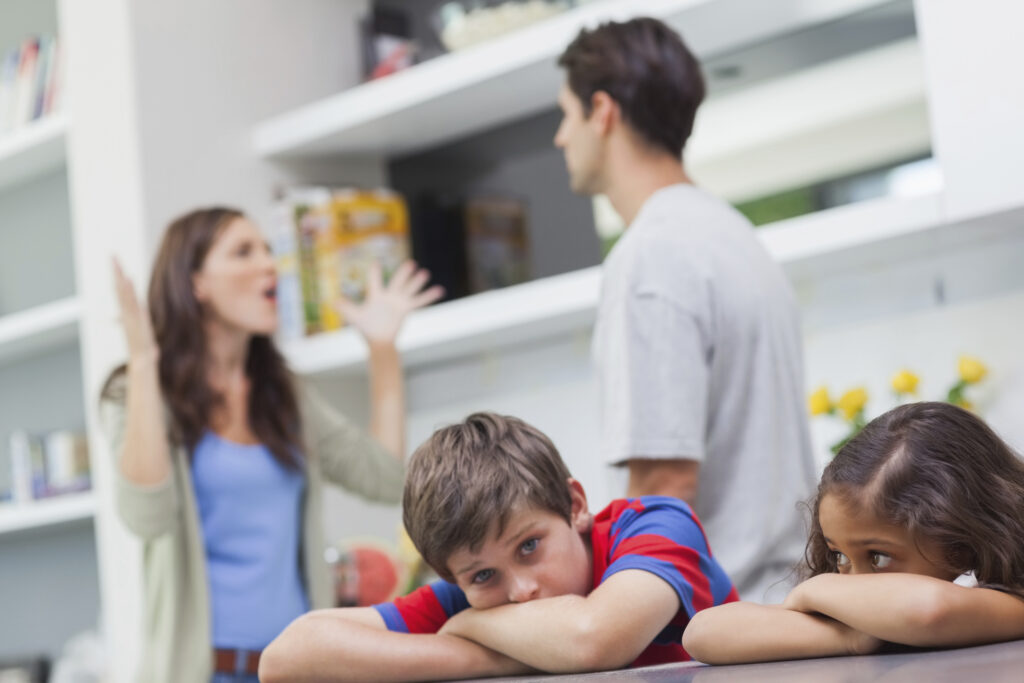
Navigating the Storm: Understanding and Addressing the Impact of Mom and Dad Fighting
Witnessing mom and dad fighting is a common yet often overlooked experience in childhood. While occasional disagreements are a normal part of any relationship, frequent or intense conflicts between parents can have significant and lasting effects on children. This article delves into the various facets of parental conflict, exploring its causes, consequences, and strategies for mitigation. Understanding the dynamics at play is crucial for parents aiming to create a healthier and more stable environment for their children.
The Prevalence of Parental Conflict
It’s important to acknowledge that disagreements are inevitable in any partnership. However, the frequency, intensity, and resolution of these conflicts are key factors determining their impact. Studies suggest that a significant percentage of children are exposed to parental conflict regularly. This exposure can range from subtle tension and passive-aggressive behavior to outright shouting matches and even physical altercations. Recognizing the prevalence of mom and dad fighting is the first step in addressing the issue effectively. Ignoring the problem or dismissing it as “normal” can have detrimental consequences.
Causes of Parental Conflict
Understanding the underlying causes of mom and dad fighting is essential for addressing the problem at its root. Common triggers include:
- Financial Stress: Money issues are a leading cause of conflict in many relationships. Disagreements over spending, saving, and financial priorities can create significant tension.
- Parenting Styles: Differences in parenting philosophies and disciplinary approaches can lead to frequent arguments. One parent may be more lenient, while the other is stricter, creating conflict over how to raise the children.
- Division of Labor: Unequal distribution of household chores and childcare responsibilities can breed resentment and conflict. When one partner feels overburdened, it can lead to arguments about fairness and workload.
- Communication Issues: Poor communication skills, such as passive-aggressiveness, criticism, and defensiveness, can exacerbate conflicts. The inability to effectively express needs and listen to each other’s perspectives can create a cycle of negativity.
- External Stressors: Work-related stress, family pressures, and other external factors can spill over into the relationship, increasing the likelihood of arguments.
- Personal Issues: Underlying issues such as unresolved trauma, mental health challenges, or substance abuse can contribute to conflict within the relationship.
The Impact on Children
The impact of mom and dad fighting on children can be profound and far-reaching. Children are highly sensitive to the emotional climate in their home, and witnessing parental conflict can trigger a range of negative emotions and behaviors. Some of the most common effects include:
- Anxiety and Depression: Children who frequently witness mom and dad fighting are more likely to experience anxiety and depression. They may feel insecure, worried, and helpless.
- Behavioral Problems: Exposure to conflict can lead to behavioral problems such as aggression, defiance, and difficulty concentrating in school. Children may act out as a way of expressing their distress.
- Academic Difficulties: The stress and emotional turmoil associated with parental conflict can interfere with a child’s ability to focus on their studies, leading to academic difficulties.
- Relationship Problems: Children who grow up witnessing mom and dad fighting may have difficulty forming healthy relationships themselves. They may struggle with trust, communication, and conflict resolution.
- Low Self-Esteem: Constant exposure to negativity and conflict can erode a child’s self-esteem and sense of worth. They may feel unloved, unwanted, and responsible for their parents’ unhappiness.
- Physical Health Problems: Studies have shown a link between exposure to chronic stress and an increased risk of physical health problems, such as headaches, stomachaches, and weakened immune function.
Different Forms of Parental Conflict and Their Impact
The way in which mom and dad fighting manifests can significantly impact children. Overt conflict, characterized by shouting, arguing, and physical aggression, is often the most directly harmful. Children exposed to this type of conflict may experience heightened anxiety and fear. Covert conflict, which includes passive-aggressive behavior, silent treatment, and emotional withdrawal, can be equally damaging. Children may sense the tension and negativity even if it’s not explicitly expressed, leading to feelings of confusion and insecurity. The intensity and frequency of these conflicts also play a crucial role in determining the severity of the impact on children.
Strategies for Mitigating the Impact
While eliminating all disagreements is unrealistic, there are several strategies parents can employ to mitigate the negative impact of mom and dad fighting on their children:
- Seek Professional Help: Couples therapy can provide a safe and structured environment for addressing underlying issues and developing healthier communication skills. A therapist can help couples identify patterns of conflict and learn strategies for resolving disagreements constructively.
- Improve Communication Skills: Learning to communicate effectively is essential for resolving conflicts peacefully. This includes actively listening to each other’s perspectives, expressing needs clearly and respectfully, and avoiding criticism and defensiveness.
- Avoid Arguing in Front of Children: Whenever possible, avoid engaging in heated arguments in front of children. If a conflict arises, try to postpone the discussion until the children are not present.
- Reassure Children: After an argument, reassure children that they are loved and that the conflict is not their fault. Explain that disagreements are a normal part of relationships and that you are working to resolve the issue.
- Present a United Front: Even when parents disagree, it’s important to present a united front to the children. Avoid undermining each other’s authority or involving children in parental conflicts.
- Focus on Resolution: The goal of any conflict should be resolution. Focus on finding solutions that meet the needs of both partners and avoid dwelling on past grievances.
- Model Healthy Conflict Resolution: Children learn by observing their parents. By modeling healthy conflict resolution skills, parents can teach their children how to manage disagreements in a constructive way. This includes demonstrating empathy, compromise, and forgiveness.
The Importance of Self-Care
Parents who are stressed, overwhelmed, or emotionally depleted are more likely to engage in conflict. Prioritizing self-care is essential for maintaining emotional well-being and reducing the likelihood of arguments. This includes getting enough sleep, eating a healthy diet, exercising regularly, and engaging in activities that bring joy and relaxation. When parents take care of themselves, they are better equipped to handle stress and resolve conflicts in a calm and rational manner. Recognizing the signs of burnout and seeking support when needed are crucial for preventing parental conflict from escalating.
When to Seek External Support
In some cases, parental conflict may be too severe or deeply rooted to resolve without external support. It’s important to seek professional help if:
- The conflict is frequent and intense.
- The conflict involves verbal or physical abuse.
- The conflict is negatively impacting the children’s well-being.
- The couple is considering separation or divorce.
- One or both partners are struggling with mental health issues.
Therapists, counselors, and support groups can provide valuable guidance and resources for couples struggling with conflict. [See also: Co-Parenting After Divorce] Seeking help is a sign of strength, not weakness, and it can make a significant difference in the lives of both parents and children.
The Long-Term Effects and Healing
The long-term effects of mom and dad fighting can persist into adulthood. Individuals who grew up witnessing frequent parental conflict may experience difficulties in their own relationships, struggle with trust and intimacy, and have a higher risk of mental health problems. However, healing is possible. Therapy can help individuals process their experiences, develop healthier coping mechanisms, and build stronger relationships. [See also: Understanding Childhood Trauma] Addressing the emotional wounds caused by parental conflict is essential for breaking the cycle of negativity and creating a brighter future.
Creating a Positive Home Environment
Ultimately, the goal is to create a positive and supportive home environment for children. This involves fostering open communication, resolving conflicts constructively, and prioritizing the emotional well-being of all family members. Parents can create a more harmonious home life by focusing on building a strong and loving relationship with each other, spending quality time with their children, and creating a sense of stability and security. While mom and dad fighting may be a reality for some families, it doesn’t have to define their experience. By taking proactive steps to address conflict and prioritize the well-being of their children, parents can create a more positive and nurturing environment for their family.
The impact of mom and dad fighting is a serious issue that requires attention and understanding. By acknowledging the problem, addressing its root causes, and implementing effective strategies for mitigation, parents can create a healthier and more stable environment for their children. Seeking professional help, improving communication skills, and prioritizing self-care are essential steps in navigating the challenges of parental conflict and building a stronger, more resilient family.

